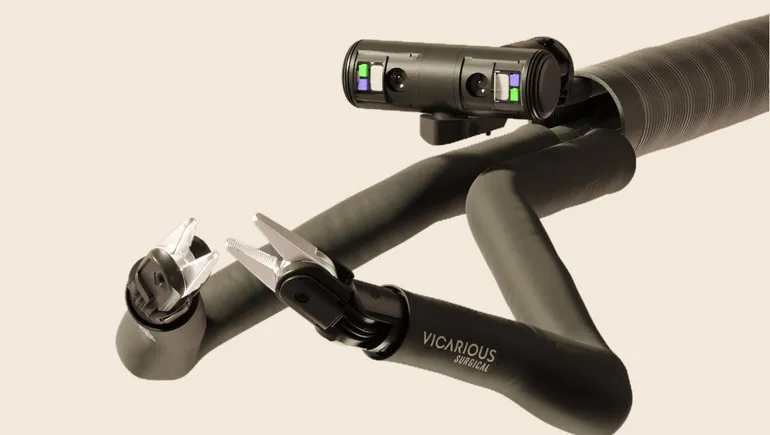Dive Brief:
- Vicarious Surgical is pushing ahead with plans to bring to market a robotic surgery system for soft tissue procedures that can compete with Intuitive Surgical’s leading da Vinci platform.
- Co-founder and CEO Adam Sachs, speaking on an earnings call Tuesday, provided details on the company’s progress as it aims for a de novo regulatory submission in 2026, saying it received feedback from the Food and Drug Administration that provides “clarity” on a path to market.
- “If [Vicarious] can stick to its timelines, we think the company has a shot to pick up incremental financing to support regulatory clearance and subsequent launch,” BTIG analyst Ryan Zimmerman said in a research note after the call.
Dive Insight:
Vicarious’ struggles over the past year as it develops its surgical robot illustrate the challenges facing would-be competitors to Intuitive.
Last year, Vicarious downsized its staff twice and reduced planned expenditures to improve its financial position as it contended with increased capital costs. Meanwhile, Intuitive announced in January that it submitted a 510(k) application with the FDA for a fifth-generation da Vinci robot, clearing the way for a potential 2024 launch.
On this week’s fourth-quarter call, Sachs said Vicarious recently raised $47 million in an additional equity offering that bolstered its balance sheet and will support its clinical and regulatory efforts in the coming quarters.
The company projected a cash burn in 2024 of about $50 million, in line with its previous forecast and below a burn rate of $63.4 million last year.
Vicarious plans to conduct cadaver testing this spring to help refine the robot’s software and hardware, Sachs said. It expects to complete the integration of system components in the fall, after it identified parts requiring further development to ensure reliability and safety, before a formal verification and validation process is started, he said.
“We are confident that our innovative approach to surgical robotics, along with its array of distinctive advantages, is the cornerstone to unleashing the complete potential of this field,” Sachs said on the earnings call.
Vicarious reported a net loss of $13.1 million in the fourth quarter, after posting a loss of $11.2 million in the same period a year ago. For full-year 2023, Vicarious reported a net loss of $71.1 million, compared with a net income of $5.2 million in the prior year.
The company had $98.2 million cash and investments as of Dec. 31.
Founded in 2014, the Waltham, Massachusetts-based company counts more than 250 hospitals as partners, and has backers that include Bill Gates and Khosla Ventures.

